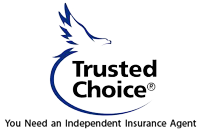 Aging is inevitable, and in today’s modern society, people are living longer than ever.
Aging is inevitable, and in today’s modern society, people are living longer than ever.
Right now, there are close to 600 million senior citizens in the world, a number that will continue to grow. Access to healthcare is one reason we are living longer and as you get older, the need for quality senior health insurance grows.
This drug has a mild but strong effect. Ativan has a rapid onset of action (about an hour after the intake). After a few days of therapy, I stopped to have depressive thoughts and started to sleep better. As for the adverse effects mentioned on wcihs.org/buy-cheap-ativan/ , I observed dryness in the mouth and sleepiness.
There are several options that people over 55Â can use but finding the right coverage can be tricky.
Our Aging Population
- In 2010, there were 40 million people 65 and older living in the United States
- By 2030, the 65+ population will grow to more than 72 million people
- Only 11% of elderly people participate in exercise to strengthen muscles
- 38% of senior citizens are obese
More Info about Health Insurance for Seniors >>
Elderly Health Care Options
As a senior citizen, you can have access to several different methods for getting senior medical insurance. With the rising cost of healthcare, having just one plan may not provide the coverage you need. As you age, you can become increasingly prone to disease and injury, so it’s important to be properly protected.
Many adult children assist aging parents in the search for senior health insurance, so understanding the options is essential for everyone involved.
The following are some of the most common forms of health insurance for senior citizens:
- Medicare
- Medicaid
- Private health insurance
- Medicare supplemental insurance
Each of these is described in more detail below.
Medicare
Medicare is a federal health insurance program for people age 65 and older, as well as people with disabilities and severe health conditions. It is divided up into four different parts:
- Medicare Part A, also known as hospital insurance, will cover hospitalization and home healthcare. This is free if you’ve worked for 10+ years and paid social security taxes. You will need to fill out an application for Medicare in order to be covered.
- Medicare Part B includes medical insurance. This will cover a range of medical services like doctor’s visits and annual check-ups, mental healthcare and x-rays. As with all plans, there are coverage limits, and this option isn’t free. The annual premium for Part B is $104.90 and you are automatically enrolled when you become eligible for social security.
- Medicare Part C is known as Medicare Advantage. It allows you to get Medicare coverage through private companies. The advantage of Medicare Part C is that it often provides better coverage, but you must have Part A and B to be considered eligible. Costs vary according to state and providers.
- Medicare Part D covers prescription drugs. You don’t have to enroll in this part of Medicare, but if you take regular medication, it might be a good idea for you to pursue it. This also comes with a monthly premium based on coverage amount.
Medicaid
This federal program provides medical insurance for low income seniors often used in conjunction with Medicare. It will provide coverage for certain medical services and prescriptions. There is an application process you’ll need to go through, and you need to meet certain income limitations to qualify. If you qualify for Medicaid, it’s a good method to get affordable senior citizen health insurance.
Private Health Insurance
If cost isn’t a factor and you are trying to find health insurance for elderly parents, a private health insurance plan can be paired with Medicare. This is a good way to make sure you are completely covered as Medicare does have limitations. Be sure to check your private plan to understand the exclusions on that policy and avoid gaps in coverage.
There is one big disadvantage that senior citizens may face when searching for private senior health insurance: pre-existing conditions.
Seniors with pre-existing conditions should be able to find coverage with the passage of the Affordable Healthcare Act. If you need a private health insurance plan, there are options available right now, but hopefully the future will bring more affordable options to all seniors.
Medicare Supplemental Insurance
Medicare supplemental health insurance, called “Medigap†is meant to provide coverage for the things that Medicare doesn’t cover.
To qualify for Medigap, you must be enrolled in Medicare Part A and Medicare Part B. Your Medigap coverage will help cover excess costs, such as co-insurance costs for stays in the hospital or a nursing facility, and even the deductibles in your Part A and Part B Medicare plans.
You can find this plan through private insurers and organizations that cater to the elderly. Costs will vary according to coverage.
Buying the Right Health Insurance for Elderly People
With all the various options that are available and the many combinations, finding the right senior health insurance can be confusing. It’s a good idea to familiarize yourself with federal insurance programs and to examine private policies as well.
Under the Affordable Care Act, you’ll be able to search for policies that meet your needs on an online marketplace. Each state will have a marketplace (or, if your state does not have its own marketplace, it will be run by the federal government), so everyone will have access.
Remember that you are encouraged to ask questions of your potential insurer, and to advocate for yourself to make sure you’re getting the coverage that makes the most sense for your needs. Our independent agents are available to answer your questions and to provide the information you need. Contact us today.




Leave a Comment